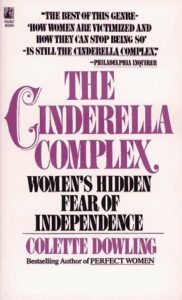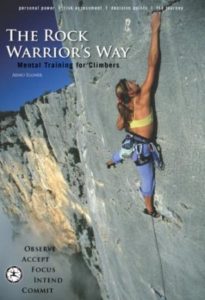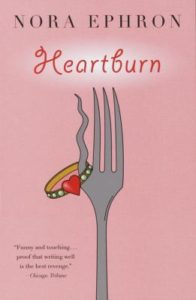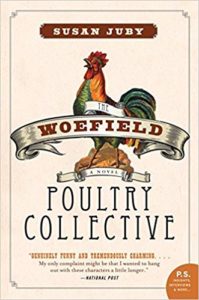
When Your Imposter Syndrome is Out of Control
A Reading List to Combat Self-Doubt
“It’s hard to write a memoir about self-doubt when you’re plagued with self-doubt.” I’ve spoken these words into almost every microphone I’ve stood behind since my book, End of the Rope: Mountains, Marriage, and Motherhood, came out this spring. It is a very personal memoir that took 12 years to write. For me, it was self-doubt and fear of disapproval that dragged the writing on and on, but the long gestational process turned out to be a blessing in disguise. Just as we need nine months to grow into the idea of becoming a mother, I needed many, many years to grow into the kind of person who could withstand the fallout of becoming a published memoirist.
But I have not been miraculously cured of my self-doubt just because I published a book. Though it has lessened some of my writer self-doubt, there are many other categories to contend with, such as my ex-wife self-doubt, and the broad category of human being self-doubt. And because I’ve written what some like to label “a climbing memoir,” I have to deal with climber self-doubt too.
A case in point: a few weeks ago I went on tour with my book, back to the small mountain towns that are the backdrop of my story, where characters in my book are still alive and kicking. I knew one audience would consist of friends who are hardcore Himalayan climbers; one of them was going to introduce me. As per my request, my publicist made an event poster for me, and when I saw it, all my climber self-doubt encased me like a ton of rock. Plastered beside my big smiley author photo was a blurb from my book: Jan Redford is a BadAss.
Now, admittedly, that is one of my favorite blurbs, and written by one of my favorite authors, John Vaillant; but I’m a post-menopausal, moderate climber who mostly mountain bikes these days. My imposter syndrome kicked into high gear and I started to compose an email to my publicist along the lines of: Really? Couldn’t we tone it down a bit with this audience of Everest-caliber climbers? Couldn’t we make it less strong? Less confident? Inject a bit of self-deprecating self-doubt?
But with fingers hovering over the keyboard, I reminded myself for the umpteenth time: even though I haven’t climbed Everest (and had no desire to) I have climbed lots of other scary shit. I’ve also kayaked wild rivers and raced down steep trails on my mountain bike. And even more challenging, I went to university as a single mom with a 20-month-old and five-year-old. I’ve climbed through my fear many times on rock, in school, in motherhood, in my relationships, and in my writing.
I realize it’s an on-going process. Fear and self-doubt are a part of my personality. Anxiety will always swirl around in my brain in psychedelic color. But there will always be books by fine authors to nudge me along, encouraging me to take baby steps toward my older, wiser, badass me and perhaps ones that will bring out the badass in you.

Jen Sincero, You are a Badass: How to Stop Doubting Your Greatness and Start Living an Awesome Life
My sister bought Sincero’s book for me to pull off the shelf whenever I felt like a chicken shit. She must remember me taking punches for her from bullies on the school bus when we were kids. Lots of cool quotables like “Growth ain’t for weenies” and “The muscle of kick-assery is like any other muscle—you have to use it or lose it.” You’ll giggle all the way through this most irreverent of self-help books.

Colette Dowling, The Cinderella Complex
Several years ago the working title for my memoir was Leaving Limbo (until someone else stole it for the title of a film) because I knew I had to come to terms with the fact that I was my only knight in shining armor before I could move on in life. Dowling describes a state that is excruciatingly embarrassing for a feminist to admit to, but that I could only too easily identify with: “The condition we admit to wanting—independence—acts as a cover for something we want just as much but can’t admit to: dependence—the need for delicious, primal security. With these two opposite wishes driving us, we get to stay in limbo. Limbo has its advantages. It may not be very hot, but neither is it very cold. It isn’t exciting, but neither is it quite the same as being dead.” This book should be obsolete for my generation but isn’t. I’m hoping my daughter’s generation will see it as quaint but antiquated and not be able to relate to one single word of it. Then I’ll know my generation has done its job.

Tristine Rainer, Your Life As Story: Discovering the “New Autobiography” and Writing Memoir as Literature
I highly doubt I could have written my memoir without this hands-on writing instruction that inadvertently provided me with countless sessions of affordable psychotherapy. Whenever I felt like a chicken shit in my writing, I could open to any page and find a courage-giving gem: “I wonder how many of us prevent ourselves from writing our stories in the name of not wanting to hurt someone else, when really it is because we don’t feel entitled to express our own truth?”

David Granirer, The Happy Neurotic
Much to my dismay, I was once labeled “neurotic” by a therapist who was essentially repeating my mother’s favorite expression: “Jan, you’re so dramatic!” I was initially indignant, but in this book Granirer reminds me that contradictions can coexist. I’m a neurotic badass. And I have to keep testing my courage over and over to grow. “As Happy Neurotics, we know our recovery will never be perfect or absolute. We also know it will never be a straight line. Carl Jung described it best when he said therapy is more of a spiral process, where we go past the same issues again and again and again but each time on a deeper level that is closer to the core.”

Arno Ilgner, The Rock Warrior’s Way: Mental Training for Climbers
A few years ago I bought this book to mentally prepare for a five-week trip of climbing in Northern Mexico that I was extremely nervous about and one of the first lines I read was: “The way you live your life is exactly the way you will climb.” I groaned because I knew “The way you live your life is exactly the way you will write your memoir” was just as true. My writing had stalled. I was dicking around with the structure, the voice, the tense, the themes. Someone told me my title should be Commit because I couldn’t commit to the writing. So what better way to nudge myself out of my indecision than to go lead up a vertical wall of rock where I’d have to commit to the moves or fall? Ilgner writes: “. . . Commit. Create a clear distinction between the time of weighing your options and the decisive moment of choice, between preparation and action. The transition must be abrupt and definitive. Create a moment of truth, a sharp breaking point. Every fiber in your being must know that you aren’t preparing anymore; you are going into action.”
I can’t say I’d recommend scaring the shit out of yourself for everyone, but I did end up with my memoir in the end. Just sayin’. And by the way, you definitely don’t need to be a climber to get some badass advice from this book.

Nora Ephron, Heartburn (in fact, anything and everything by Nora Ephron)
Nora Ephron was the spunkiest badass ever. She famously said, “Above all, be the heroine of your life, not the victim.” She didn’t publish and then cringe and whine about what people thought of her. “Everything is copy,” she said. Her “novel” Heartburn, is apparently almost a blow-by-blow account of her divorce. She refers to her husband’s mistress as “a fairly tall person with a neck as long as an arm and a nose as long as a thumb,” and her husband as a man “capable of having sex with a venetian blind.” Whenever I feel guilty about anything I’ve written, I turn to Nora Ephron. Her writing has such power that she can still speak to us from the grave. “Quit your kvetching,” she says to me. “Woman-up!”

Kate Quinn, The Alice Network
This is a page-turner of a story based on the real-life group of female agents, The Alice Network, active during the Great War. Daring, tough, badass female spies who relinquished their bodies for the cause and who gave their lives out of loyalty for each another, their sisters. These women with nerves of steel would have made good climbers. They were so badass you would never catch them reading a book on mental preparation for climbers. The scars on my hands from crack climbs are nothing compared to the scars on Eve’s (one of the main characters) hands after having each bone smashed with a hammer by a psychopathic Nazi sympathizer. The adrenaline positively vibrates off these pages. Sometimes people ask me why climbers climb. I believe it’s to achieve the sense of excitement, commitment, camaraderie, and purpose of our World Wars, however horrific they were. Climbing provides the same tangible, concrete, life and death situation our forebears experienced during war. The mountains provide meaning we no longer find in our daily, modern, urban lives.

Susan Juby, The Woefield Poultry Collective
Charming, off-beat, naïve, Prudence Burns is such a misfit. And, oh, what a badass! She has no idea how badass she is! She wants something badly—a back-to-the-land life with chickens and a depressed sheep on a run-down farm in spite of the fact that she has barely ventured out of the city—so she goes for it and makes it happen. Easy-peasy. Prudence is just like her creator, Susan Juby, “wise, witty and full of heart.” Maybe that’s the key. To be badass you have to have lots of heart. And you have to be brave enough to expose that heart. If you love this novel, follow Prudence’s antics in Republic of Dirt: A Return to Woefield Farm.

Stuart Smalley (really by Al Franken), I’m Good Enough, I’m Smart Enough, and Doggone It, People Like Me!: Daily Affirmations
I couldn’t resist this one last addition. I’ve read so many self-help books over the years and said so many affirmations that I was rolling around on the carpet giggling to Stuart Smalley’s daily affirmations. Whenever I stopped laughing for a second I realized there are some real kernels of wisdom in this book. Smalley writes: “I’m so afraid Andrea (my editor) will phone, that I’m screening all my calls with my machine. The program teaches us to be totally honest, so I’ve changed my message from ‘Hello, this is Stuart, I am not home right now’ to ‘Hello, this is Stuart, I am unable to take your call at the moment.’ Then I realized that what’s most important is being honest with yourself! Owning my own feelings. And to tell you the truth, I mean, to tell me the truth, I am petrified.”
Badasses can laugh at themselves. Badasses are honest. Badasses are vulnerable.
I used to chew tobacco and cuss and make disgusting bodily noises over and above the call of duty to fit in with my testosterone-laden community of climbers. I needed to be tough. But now I know what my twenty-something self had to figure out after a few hard knocks on the noggin. Vulnerable = Badass.
Jan Redford
Jan Redford lives with her family in British Columbia, where she mountain bikes, trail runs, climbs and skis. Her writing has been published in The Globe and Mail, National Post, Mountain Life, Explore and various anthologies. She is a graduate of The Writer’s Studio at Simon Fraser University and holds a master’s in creative writing from the University of British Columbia. Her memoir, End of the Rope, is out now from Counterpoint Press.



















